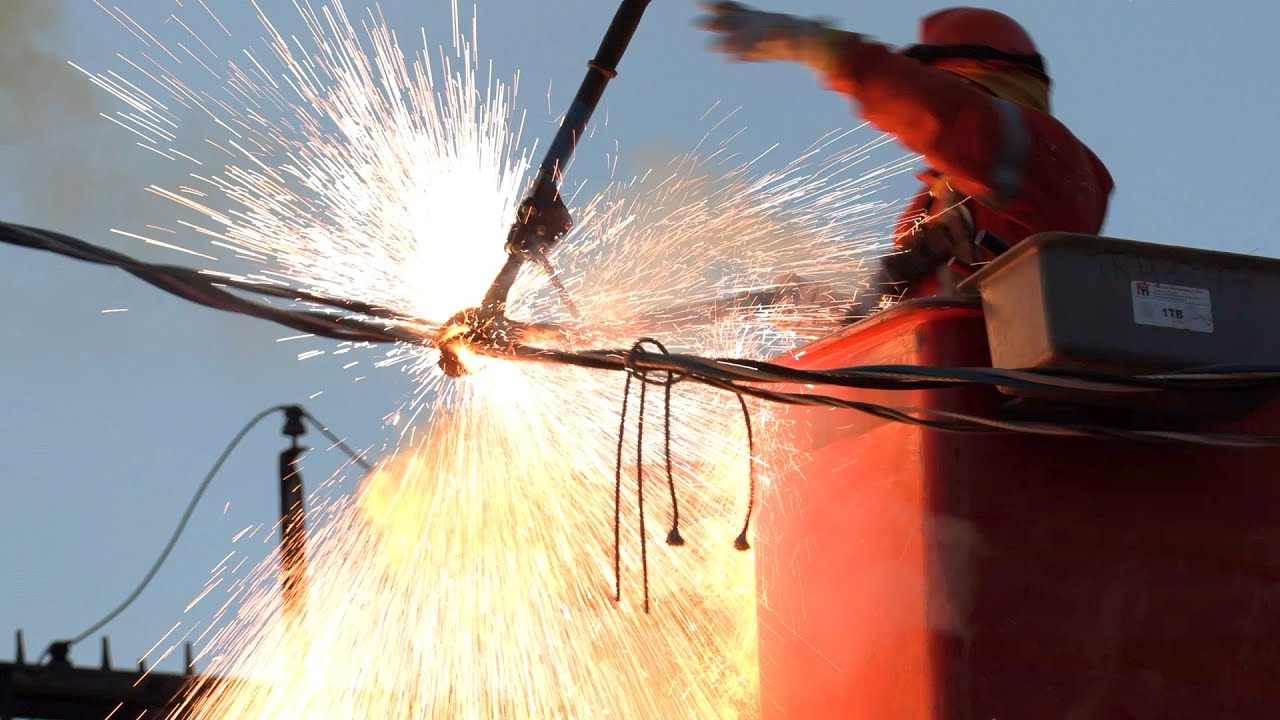FREE CONSULTATION: 214.522.9404

Electrical or electrocution accidents may happen when you come in contact with electrical sources, such as power outlets, household wiring, and faulty machinery. Depending on your skin’s wetness, your body size, and other factors, these accidents can cause various injuries and trauma, including burns, disfigurement, neurological damage, and memory loss.
If you or a loved one has been hurt by an electrical or electrocution accident, contact Crain Brogdon, LLP Dallas personal injury lawyers today. Aggressive and experienced, our attorneys are widely recognized for their courtroom talents. To get started, just tell us about your case, and we will give you informed legal advice and fight for your rights. We will settle for nothing less than what you deserve.
Why Choose Us
- Crain Brogdon, LLP Dallas electrocution injury lawyers are dedicated to serving clients in Dallas, Tarrant, and Collin counties.
- Our reputation for providing top-notch legal service makes us the right choice.
- Our clients are always well-informed about their case, and their questions are always answered promptly.
What We Can Do for You
After a traumatic electrical accident, Crain Brogdon, LLP‘s experienced Dallas electrical accident lawyers can help you get your life back together. Our experienced legal team will serve you in the following ways:
- Analyze your case
- Gather evidence
- Handle all communications on your behalf
- Fight for your rights.
What Are Electrical and Electrocution Accidents?
Electrical and electrocution accidents happen when you come into contact with electrical sources. Although many people use the terms “electrical” and “electrocution” interchangeably, they are slightly different. Electrical injuries involve electrical harm but do not cause death; electrocution accidents result in death.
Electrical and electrocution accidents can happen when you come into contact with:
- Faulty machinery and electrical appliances
- Household wiring
- Electrical power lines
- Downed power lines
- Damaged or frayed cords
- Overloaded power outlets
- Electrical devices in a bathtub or pool.
The severity of electrical and electrocution injuries depends on several factors, including:
- Gender
- Body size
- Current intensity
- Skin wetness
- Length of sustained contact with the current
- Body area through which the current passes.

VIDEO: Electrical Accidents
What you need to know about electrical accidents and how Crain Brogdon, LLP can help.
Types of Electrical Accidents
There are four main types of electrical accidents:
- Flash: These injuries are caused by an arc flash, a phenomenon where an electric current flashover strays from its intended path and travels through different conductors in the air. Arc flashes can be caused by various things, including condensation, faulty installation, material failure, dropping tools, and dust. Flash accidents are usually associated with superficial burns, since the electrical currents rarely travel past the skin.
- Flame: These injuries happen when an arc flash ignites your clothes. They are usually more severe than flash injuries because they often pass through the skin.
- Lightning: Lighting electrical injuries involve extremely short but high-voltage electric energy. The electrical current usually flows through your entire body.
- True: True electrical injuries happen when you become part of an electrical circuit.
Get a free consultation. Call us at (214) 522-9404.
What Kind of Injuries Do Electrical and Electrocution Accidents Cause?
Electrical and electrocution accidents can cause a range of injuries, the most common of which are listed below:
- Neurological and nerve injuries
- Heart damage
- Kidney damage
- Burns
- Bone fractures
- Amputations
- Compartment syndrome
- Psychological effects
- Death.
The injuries resulting from an electrical injury can be extremely painful and can impact the victim’s health and quality of life for years to come. With a strong enough current, they can even end the life of the injured party.
Health and Securing a Fair Settlement
It is important to follow your health care professional’s directives if you have experienced an electrical injury. Your health is the primary concern. By following the doctor’s orders, you will be able to heal more completely and effectively. Attend all doctor’s appointments and do what you are told to care for your injuries.
An additional reason for following the doctor’s orders is to secure a fair settlement. The following are a few reasons that this is important when you begin to pursue compensation:
- You will have a paper trail describing the extent of your injuries. This can be very important if your case goes to trial.
- By attending all appointments and following your health care provider’s directions, you demonstrate that you took your injuries seriously.
- You can avoid further damage that neglecting your injuries might cause.
Legal Options After Electrical and Electrocution Accidents
Depending on how you got injured, you may be able to pursue one or more of the following legal options to recover compensation:
- Filing workers’ compensation claims: If you or a loved one suffered electrical injuries at work or performing work for a company, you can seek justice through a workers’ compensation claim. While these claims don’t provide for pain and suffering, they do provide compensation for medical treatment, lost income, and survivors’ benefits.
- Filing private lawsuits: If you didn’t get injured at work or in a business, you may be able to sue an individual or company privately. For example, if you suffered electrical injuries while visiting an apartment complex, you can sue the property owner for failing to protect you.
- Suing a utility company: If a utility company’s negligence or malfunctioning equipment exposed you to electrical issues that caused your injuries, you should hire a lawyer to determine if you have a valid claim against the utility.
- Suing the city government: Electric shock accidents are sometimes caused by the city government’s negligence. If that’s the case, you can sue the city government for your injuries.
- Filing wrongful death claims: Lastly, if a family member was killed by electrocution, you and other surviving family members may have a valid wrongful death lawsuit. Under Texas law, the deceased person’s surviving spouse, parents, and children can file a wrongful death lawsuit.
It is critical after you or a loved one sustains an electrical injury that you speak to a Dallas electrocution attorney to find out what your rights are. Often electrocution injury lawsuits are in order so that you can receive compensation for the damages sustained because of the accident.
What Compensation Can I Expect After an Electrical Injury in Dallas, Texas?
The compensation you get depends on the severity of your injuries and your contribution, if any, to the events that caused the accident.
Generally speaking, there are two types of damages you can expect from electrical injury lawsuits: special damages and general damages. Also called economic or consequential damages, special damages compensate you for monetary losses. Common examples include:
- Medical bills and expenses
- Loss of earnings and wages
- Property damage
- Future lost earning capacity
- Out-of-pocket expenses.
Special damages usually have a set dollar value assigned to them, so they are usually easy to calculate. For instance, if you were hurt by a faulty machine and had to undergo medical treatment for burns and kidney damage, you can estimate the cost of this treatment by simply adding up your medical bills.
In contrast, general or non-economic damages compensate you for non-monetary losses. Examples include:
- Loss of consortium
- Mental anguish
- Emotional distress
- Pain and suffering
- Loss of companionship
- Loss of quality of life
- Disfigurement.
General damages are much more subjective than special damages. As such, they are harder to calculate than special damages.
That’s where Crain Brogdon, LLP‘s experienced Dallas electrical and electrocution injury attorneys come in.
After analyzing your case, we will collaborate with expert witnesses to convince the judge and jury that you deserve general damages. Get a free consultation Call us at (214) 522-9404
Rob Crain, Partner
Attorney Rob Crain is a nationally renowned personal injury and electrocution accident lawyer. He graduated from the University of Texas with high honors and obtained his Juris Doctorate from the University of Texas School of Law. Soon after, he started working as a lawyer at a personal injury defense firm. He then opened his own firm and started recruiting a team of personal injury professionals who now form Crain Brogdon, LLP.
Rob is passionate about defending victims’ rights. To date, he has obtained some of the largest personal injury settlements and verdicts in the U.S., including a verdict awarded to parents in a child death and negligence case.
As a respected lawyer, Rob is a member of the Board of Directors of the Texas Trial Lawyers Association. He has also been included in various “Best Lawyers” lists, including:
- U.S. News’ Best Lawyers in America
- Texas Monthly
- D Magazine.
Additionally, Rob is AV® Rated by Martindale-Hubbell, which means that fellow legal professionals and lawyers have rated him highly for his legal skill and ethical practice.
Besides personal injury, Rob’s areas of practice include:
- Wrongful death
- Product defects
- Civil law plaintiff cases.
Quentin Brogdon, Partner
Attorney Quentin Brogdon boasts over 30 years of experience in the field of personal injury law. He is board certified in civil trial and personal injury advocacy. Like Rob, Quentin has many awards and honors, including:
- Top 100 Super Lawyers in Texas (Texas Monthly)
- Best Lawyers in Dallas (D Magazine)
- Top 100 Texas Trial Lawyers (National Trial Lawyers)
- 500 Plaintiffs’ Consumer Lawyers in America (Lawdragon Magazine).
Quentin has also received an AV® Martindale-Hubbell rating, which means that his peers have rated him highly for his legal expertise, ethical standards, and communication skills.
Contact Crain Brogdon, LLP for a Free Consultation Today
An electrical accident can change your life forever. Depending on the severity of your injuries, you may no longer be able to work or enjoy life. You may also suffer from PTSD, depression, and anxiety.
Fortunately, Crain Brogdon, LLP’s team of electrical injury lawyers is here to help. Reliable, well-connected, and compassionate, we will help you . . .
- File all of your paperwork on time
- Gather evidence, including expert witnesses
- Advance your case in court.
Crain Brogdon, LLP serves clients throughout Dallas, Tarrant, and Collin counties. Fill in our online form or call us at (214) 522-9404 for a free, no-obligation case evaluation.

Attorney Robert D. Crain
Robert D. Crain is a nationally renowned personal injury attorney who has been included in lists such as U.S. News’ Best Lawyers in America. Additional publications often include Rob on their “Best Lawyers” lists, including Texas Monthly and D Magazine. As a testament to his excellence, he is AV® Rated by Martindale-Hubbell. [ Attorney Bio ]






